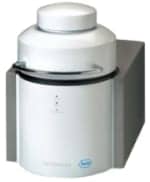
The knowledge that tumors exude odors not found in healthy tissue is nothing new; however, researchers are now realizing just how useful man’s best friend can be in detecting these smells. I first heard stories about dogs detecting melanomas in the late 1980s. Several dog owners claimed that their pets saved their lives by alerting them to cancerous skin lesions. Then, in a study conducted in 2004, a medical journal in Britain published the results of a double-blind, peer-reviewed study that concluded that dogs can be trained to recognize and flag bladder cancer. An interesting sidebar to the 2004 bladder-cancer study was that the dogs consistently identified as cancerous the urine of a patient classified as cancer-free. Because of the dogs’ persistence, the patient was tested again using conventional methods, and a previously missed kidney carcinoma was found.
In the latest study, cancer samples and control samples were collected and presented to five dogs that had been trained to lie down in front of cancer samples and ignore the control samples. (Cancer patients who had begun chemotherapy were excluded from the study, since chemotherapy has its own odors.) The dogs detected breast cancer with 88% accuracy and lung cancer with 97% accuracy!
Of course, further confirmation of accuracy is essential. Additional studies with other dogs are needed, but the ramifications of this latest study are immense. If the results hold up, using dogs to sniff out cancer could become an accurate, inexpensive, and quick way to screen for certain cancers. The possibilities for early detection are endless once the chemical compounds in the breath that most accurately point to the presence of cancer are identified. Even those who want to keep dogs out of diagnostics recognize that if dogs can help pinpoint specific chemicals characteristic of certain cancers, it could be a tremendous help in developing new diagnostic tools. Someone remarked that using dogs is unconventional, but it is the results that matter. I agree.
Have a great month, and give that dog a treat! He (or she) could save your life or the life of someone you love.
Carol Andrews
[email protected]


